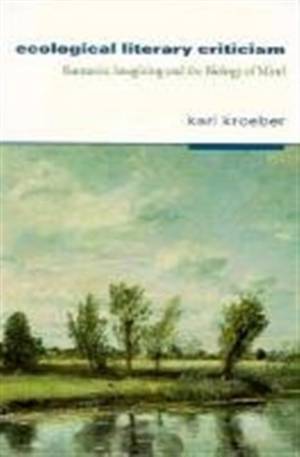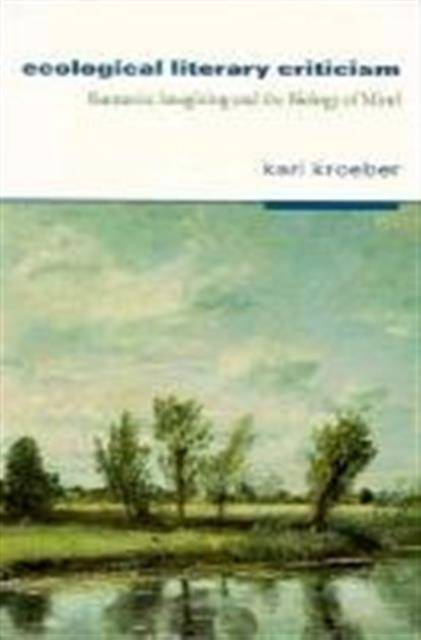
En raison d'une grêve chez bpost, votre commande pourrait être retardée. Vous avez besoin d’un livre rapidement ? Nos magasins vous accueillent à bras ouverts !
- Retrait gratuit dans votre magasin Club
- 7.000.000 titres dans notre catalogue
- Payer en toute sécurité
- Toujours un magasin près de chez vous
En raison de la grêve chez bpost, votre commande pourrait être retardée. Vous avez besoin d’un livre rapidement ? Nos magasins vous accueillent à bras ouverts !
- Retrait gratuit dans votre magasin Club
- 7.000.0000 titres dans notre catalogue
- Payer en toute sécurité
- Toujours un magasin près de chez vous
59,45 €
+ 118 points
Description
Kroeber argues that literary criticism needs to reestablish connections to a wide range of social activities, especially the thinking of contemporary scientists.
This new kind of criticism, "ecological literary criticism," sets out to correct the abstractions of current theorizing about literature, and to make humanistic studies more socially responsible. Though applicable to any writer of any period, Kroeber points out that the proto-ecological tendencies of the English Romantic poets make them especially useful as a starting point for this approach. Since the Romantics believed that people were, and should be, at home in the natural world. Ecological Literary Criticism asks that we examine poetry from a perspective that assumes that the imaginative acts of cultural beings offer valuable insights into how and why cultural and natural phenomena have interrelated in the past and how they could more advantageously interrelate in the future. Kroeber argues that this approach to criticism will help us to develop mutually enriching links between humanistic and scientific modes of understanding humankind and the earth we inhabit.Spécifications
Parties prenantes
- Auteur(s) :
- Editeur:
Contenu
- Nombre de pages :
- 185
- Langue:
- Anglais
- Collection :
Caractéristiques
- EAN:
- 9780231100298
- Date de parution :
- 05-01-95
- Format:
- Livre broché
- Format numérique:
- Trade paperback (VS)
- Dimensions :
- 152 mm x 227 mm
- Poids :
- 294 g

Les avis
Nous publions uniquement les avis qui respectent les conditions requises. Consultez nos conditions pour les avis.






